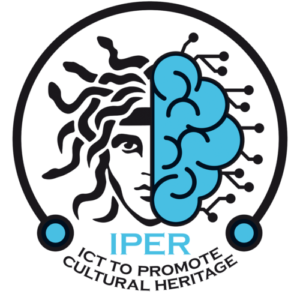OUTPUTS
OUTPUT 1
State of the Art on promotion of cultural heritage and use of digital tools according to accessible tourism principles
Description:
This output has been developed during WP1. The objectives of this WP were:
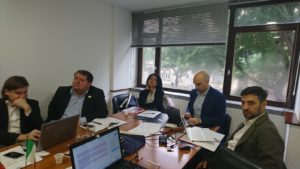
- To analyse the actual situation of promotion of cultural heritage and use of digital tools in the involved countries and at European level;
- Analysis of the current status of the use of digital tools to promote cultural heritage and to train tourism sector’s assistants of tourists with special needs during their cultural visit in the countries involved and in the rest of Europe
- To select a group of direct beneficiaries, Peer Committee, that will be involved in the implementation of the project and especially in the testing of the training materials beta version. (IT, HU, PT)
Download Summary Report:
Summary Report on the actual situation of promotion of cultural heritage through digital tools and according to accessible tourism principles (ES/ PT/ IT/ HU)
Download the support and preparation material:
Tool for gathering information on state of art (operators / public bodies) and Guidelines IPER desk research
OUTPUT 2
Title:
Case Studies
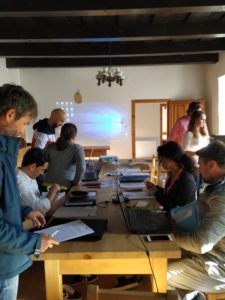
Description:
This output has been developed during WP2. The main aims of this WP related to this output are:
- to gather a set of case studies that will represent the main content of the training system.
The training system that we developed was based on case studies deriving from the selection of best practices related to promotion of cultural heritage through digital tools according to accessible tourism principles in the EU countries members of the project.
Download the support and preparation material:
Guidelines IPER CASE STUDY (1) and Case_study_Table_template final
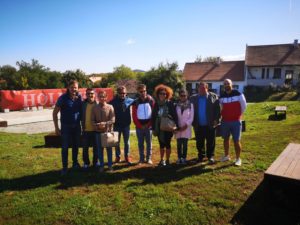
Resulting of our research, here are the cases studies for each country:
OUTPUT 3
Title:
Complementary OER
Description:
This output has been developed during WP2. The main objective of this WP related to this output is:
- To develop and adapt a set of OER that, together with the case studies, will represent the main contents of the training system.
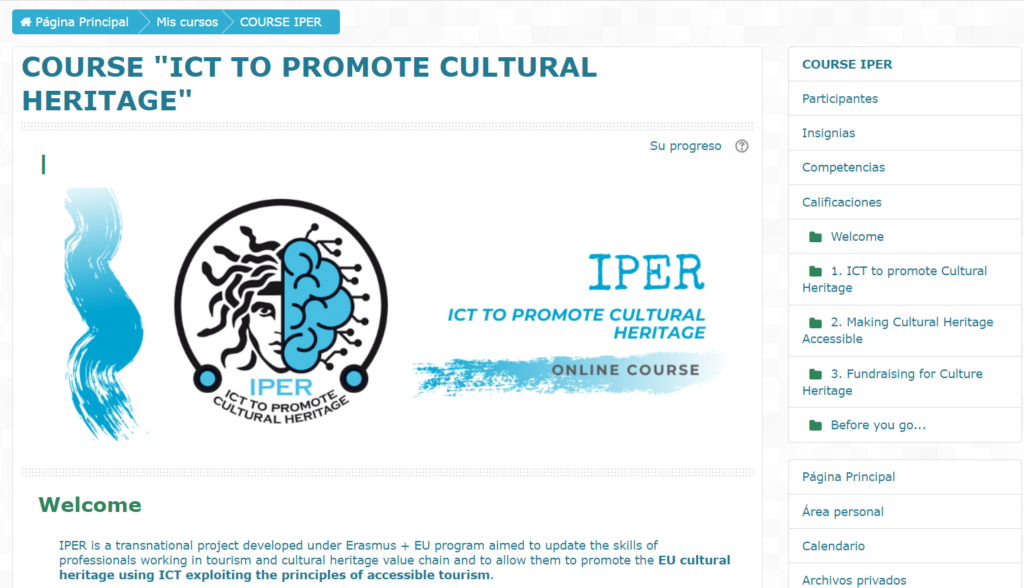
The course’s content is organized in three modules.
1. ICT to promote cultural heritage accessible – in this module you will learn:
– What is culture heritage and how to promote it
– ICT and trends in
– Best practices
IPER GUIDELINES FOR OER PILOT TEST
2. Making cultural heritage accessible – in this module you will learn:
– Respect legal guidelines and ICT tool for accessibility
– Legal and historical framework
– Analysis of accessible tourism in Europe
– Examples of accessibility projects in tourism
A Pilot Test was held in all the countries. 27 Pilot users, the direct beneficiaries selected by partners, participated in the Pilot Test. Partners organized a one day training session with the beta version of the training materials. During this session it was presented:
– The Erasmus+ Programme;
– Project aims and objectives;
– Case studies;
– Other Open Educational Resources (OER).
– Each user received username and password to access the platform and they had able to contact a tutor by email or through the elearning platform. After this training session, the direct beneficiaries had the possibility of further testing the training materials during two weeks by accessing the e learning platform of the project webpage, where the beta version of the course was at their full disposal. The direct beneficiaries then filled in and submitted an Evaluation Questionnaire, which was designed by CCIS, following OER Online Evaluation Tool developed by the Institute for the Study of Knowledge Management in Education (ISKME).
3. Fundraising for cultural heritage
– Funding programs (European Direct and Indirect funds)
– European projects
– Fundraising options
